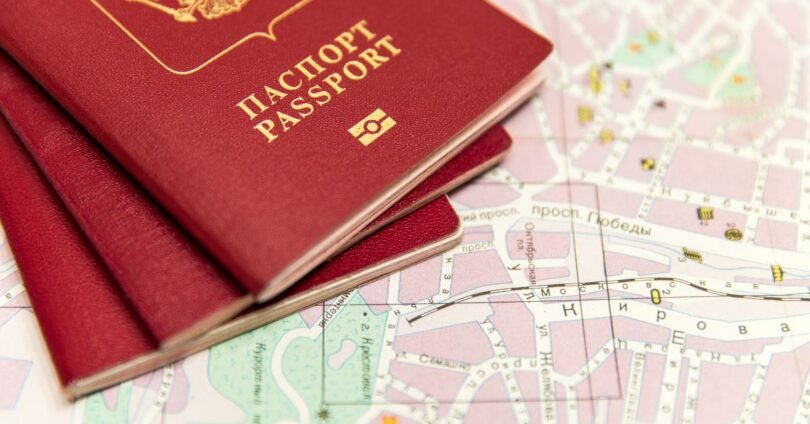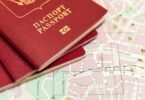The Netherlands, known for its progressive economy, high quality of life, and multicultural environment, is a prime destination for immigrants seeking career opportunities. With a robust job market and a shortage of skilled workers in various sectors, many Dutch employers are open to sponsoring visas for international talent. This comprehensive guide explores sponsorship jobs in the Netherlands for immigrants, detailing job types, industries, visa options, application processes, and strategies to secure employment. Whether you’re a skilled professional or an entry-level worker, this article provides actionable insights to help you navigate the Dutch job market and build a successful career.
Why Choose the Netherlands for Work?
The Netherlands boasts one of Europe’s strongest economies, driven by innovation, trade, and a strategic location. Cities like Amsterdam, Rotterdam, and Utrecht are hubs for international business, technology, and logistics, attracting global companies and talent. The country’s inclusive policies, excellent work-life balance, and high salaries make it an appealing destination for immigrants. Additionally, the Dutch government’s visa programs, such as the Highly Skilled Migrant visa, facilitate the recruitment of foreign workers to address labor shortages.
The demand for workers is particularly high in sectors like technology, healthcare, engineering, and agriculture, where employers often sponsor visas to fill critical roles. According to recent labor market reports, the Netherlands faces a shortage of over 400,000 workers in key industries, creating opportunities for international candidates. This article delves into the top sponsorship jobs, visa requirements, and practical steps to secure employment in the Netherlands.
Types of Sponsorship Jobs in the Netherlands
1. Technology and IT Professionals
The Netherlands is a global leader in technology and innovation, with companies like ASML, Philips, and Booking.com headquartered in the country. IT roles, including software developers, data scientists, and cybersecurity experts, are in high demand, and many employers offer visa sponsorship to attract international talent.
Responsibilities:
- Developing and maintaining software applications or systems.
- Analyzing data to drive business decisions (data scientists).
- Implementing security protocols to protect digital infrastructure (cybersecurity experts).
- Collaborating with cross-functional teams on tech projects.
Requirements:
- Bachelor’s or master’s degree in computer science, IT, or a related field.
- Proficiency in programming languages like Python, Java, or C++.
- 2-5 years of relevant experience, depending on the role.
- Strong English proficiency (Dutch is a plus but often not required).
- Problem-solving skills and adaptability to fast-paced environments.
Salary Expectations:
IT professionals earn between €45,000 and €90,000 annually, with senior roles like data scientists or AI engineers commanding higher salaries (€100,000+). Benefits often include health insurance, pension plans, and relocation assistance.
Visa Sponsorship:
Most tech companies sponsor the Highly Skilled Migrant visa, which requires a minimum salary of €5,240/month for workers aged 30+ or €3,858/month for those under 30 (2025 rates). Some firms also sponsor EU Blue Cards for highly qualified professionals.
2. Healthcare Professionals
The Netherlands has a world-class healthcare system facing a shortage of doctors, nurses, and specialized medical staff. Hospitals, clinics, and care facilities actively recruit international workers, often providing visa sponsorship.
Responsibilities:
- Providing patient care in hospitals or clinics (nurses, doctors).
- Conducting diagnostics or specialized treatments (e.g., radiologists, surgeons).
- Supporting elderly or disabled patients in care homes.
- Collaborating with multidisciplinary healthcare teams.
Requirements:
- Relevant medical or nursing degree recognized in the Netherlands (may require validation via BIG registration).
- 1-3 years of experience in healthcare settings.
- English proficiency; Dutch language skills are often required for patient-facing roles.
- Licensing or certification as per Dutch regulations (e.g., BIG register for doctors and nurses).
- Compassion and strong interpersonal skills.
Salary Expectations:
Nurses earn €35,000-€55,000 annually, while doctors and specialists can earn €70,000-€150,000 or more, depending on experience and specialization. Benefits include paid leave, professional development, and visa support.
Visa Sponsorship:
Healthcare employers commonly sponsor the Highly Skilled Migrant visa or the EU Blue Card for doctors and specialists. For lower-skilled roles (e.g., care assistants), some employers offer work permits for intra-company transfers or seasonal work.
3. Engineering and Technical Roles
The Netherlands is a hub for engineering, particularly in civil, mechanical, and electrical fields, driven by companies like Shell, Royal HaskoningDHV, and Damen Shipyards. Engineers are sought after for infrastructure, energy, and maritime projects.
Responsibilities:
- Designing and testing engineering solutions (e.g., bridges, machinery, renewable energy systems).
- Managing construction or manufacturing projects.
- Conducting research and development for innovative technologies.
- Ensuring compliance with safety and environmental standards.
Requirements:
- Bachelor’s or master’s degree in engineering (civil, mechanical, electrical, etc.).
- 2-5 years of relevant experience.
- Proficiency in English; Dutch is beneficial for local projects.
- Technical skills in tools like AutoCAD, MATLAB, or SolidWorks.
- Strong analytical and project management skills.
Salary Expectations:
Engineers earn €50,000-€100,000 annually, with senior roles offering higher salaries. Benefits include relocation packages, housing assistance, and professional training.
Visa Sponsorship:
The Highly Skilled Migrant visa is the most common option, with employers like ASML and Shell frequently sponsoring international engineers. The EU Blue Card is also available for highly qualified candidates.
4. Agricultural and Seasonal Workers
The Netherlands is a global leader in agriculture, particularly in greenhouse farming, dairy, and horticulture. Seasonal jobs in agriculture, such as fruit picking or greenhouse work, often offer visa sponsorship due to labor shortages.
Responsibilities:
- Harvesting crops (e.g., fruits, vegetables, flowers).
- Operating farm machinery or maintaining greenhouses.
- Packing and processing agricultural products.
- Ensuring quality control in production lines.
Requirements:
- No formal education required for most roles, though agricultural training is a plus.
- Physical stamina and willingness to work outdoors.
- Basic English or Dutch for communication.
- Ability to work in fast-paced, seasonal environments.
Salary Expectations:
Seasonal workers earn €12-€18 per hour, equating to €25,000-€40,000 annually for full-time roles. Benefits may include accommodation and transport allowances.
Visa Sponsorship:
Employers often sponsor seasonal work permits under the Dutch work visa system, valid for up to 24 weeks. Some roles may qualify for longer-term work permits if extended contracts are offered.
5. Logistics and Transportation Workers
With Rotterdam’s port being one of the largest in Europe, logistics and transportation roles, including truck drivers and warehouse workers, are in high demand. Companies like DHL and Maersk often sponsor visas for skilled drivers and logistics professionals.
Responsibilities:
- Driving trucks or delivery vehicles for goods transport.
- Managing warehouse operations, such as inventory and shipping.
- Coordinating logistics for supply chain efficiency.
- Ensuring compliance with safety and transport regulations.
Requirements:
- Valid driver’s license (EU-recognized or convertible to Dutch license for drivers).
- 1-2 years of experience in logistics or driving.
- Basic English or Dutch proficiency.
- Physical fitness for warehouse roles or long driving hours.
Salary Expectations:
Truck drivers earn €30,000-€50,000 annually, while logistics coordinators can earn €40,000-€70,000. Benefits include overtime pay, health insurance, and visa support.
Visa Sponsorship:
The Highly Skilled Migrant visa is used for logistics managers, while work permits are common for drivers and warehouse workers, particularly for intra-company transfers.
Visa Options for Sponsorship Jobs
Securing a job with visa sponsorship requires understanding the available visa types. The Netherlands offers several visa programs tailored to different skill levels and job types.
Highly Skilled Migrant Visa
This visa is designed for highly qualified professionals earning above a minimum salary threshold.
- Eligibility: Job offer from a recognized sponsor (listed by the Dutch Immigration and Naturalisation Service, IND) with a salary of €5,240/month (age 30+) or €3,858/month (under 30) in 2025.
- Duration: Up to five years, renewable, with a path to permanent residency.
- Process: Employer applies through the IND, submitting a job contract and proof of qualifications. Processing takes 2-4 weeks, with fees of €320 (employer-paid).
- Advantages: No labor market test required, making it faster to process.
EU Blue Card
The EU Blue Card is for highly skilled non-EU professionals with a university degree and a job offer meeting salary requirements.
- Eligibility: Bachelor’s degree or higher, a job offer with a minimum salary of €6,245/month (2025), and relevant experience.
- Duration: Up to four years, renewable, with a path to permanent residency.
- Process: Employer submits the application to the IND. Processing takes 3-6 weeks, with fees of €320.
- Advantages: Offers mobility within the EU after 18 months.
Work Permit (GVVA)
The Single Permit (GVVA) combines a residence and work permit for non-EU workers in various roles, including seasonal and lower-skilled jobs.
- Eligibility: Job offer from a recognized sponsor, with proof that no suitable EU workers are available (labor market test).
- Duration: Up to one year, renewable based on the job contract.
- Process: Employer applies through the IND, providing job details and qualifications. Processing takes 5-7 weeks, with fees of €320.
- Limitations: More restrictive than the Highly Skilled Migrant visa, with stricter requirements for low-skilled roles.
Intra-Company Transfer (ICT) Permit
For employees transferred within a multinational company to a Dutch branch.
- Eligibility: Employment with a multinational company for at least three months, a job offer in the Netherlands, and a salary meeting Highly Skilled Migrant thresholds.
- Duration: Up to three years, non-renewable.
- Process: Employer applies through the IND. Processing takes 2-4 weeks, with fees of €320.
- Advantages: Streamlined process for multinational employees.
Challenges of Securing Sponsorship Jobs
While the Netherlands is immigrant-friendly, securing a visa-sponsored job can be challenging due to:
- Language Barriers: Although English is widely spoken, Dutch proficiency is often required for customer-facing or local roles.
- Competition: High demand for visas like the Highly Skilled Migrant program means early applications are crucial.
- Employer Requirements: Employers must be recognized sponsors with the IND, which limits the pool of eligible companies.
- Documentation: Immigrants must provide extensive documentation, including degrees, work experience, and translated certificates, which can be time-consuming.
To overcome these challenges, target industries with known shortages (e.g., IT, healthcare) and work with recognized sponsors like Philips, Nike, or KLM.
How to Find Sponsorship Jobs in the Netherlands
1. Research Recognized Sponsors
The IND publishes a Public Register of Recognised Sponsors, listing companies authorized to sponsor visas. Notable sponsors include:
- Technology: Booking.com, ASML, Accenture.
- Healthcare: Erasmus Medical Center, UMC Utrecht.
- Engineering: Shell, Royal HaskoningDHV.
- Logistics: DHL, Maersk, Port of Rotterdam.
- Agriculture: Companies like The Greenery or Van Drie Group.
Visit company career pages and filter for roles mentioning “visa sponsorship” or contact HR to confirm sponsorship availability.
2. Use Job Search Platforms
Leverage job boards that highlight visa-sponsored roles, such as:
- Indeed Netherlands: Lists thousands of jobs, with filters for visa sponsorship.
- LinkedIn: Ideal for networking and finding multinational companies open to international hires.
- Stepstone: Features 500+ jobs with visa sponsorship in tech and engineering.
- Blue Lynx: Specializes in international recruitment and visa-sponsored roles.
- Undutchables: Focuses on jobs for non-Dutch speakers, including entry-level roles.
Search for terms like “visa sponsorship jobs Netherlands” or “Highly Skilled Migrant jobs” to find opportunities.
3. Work with Recruitment Agencies
Agencies like Randstad, Manpower, and Unique Multilingual specialize in placing international candidates in visa-sponsored roles. They assist with job matching, visa applications, and document preparation.
4. Network Strategically
- Online Communities: Join LinkedIn groups like “Expats in the Netherlands” or Reddit’s r/Netherlands for job leads and advice.
- Job Fairs: Attend events like the Amsterdam Career Fair or virtual fairs hosted by EURES to connect with employers.
- Expat Networks: Engage with organizations like ACCESS or the International Community Platform for support and referrals.
5. Prepare a Strong Application
- CV: Use a Dutch-style CV (1-2 pages, concise, with measurable achievements, e.g., “Developed 10+ software applications for clients”).
- Cover Letter: Tailor it to each job, mentioning your eligibility for visa sponsorship and willingness to relocate.
- Documentation: Gather degrees, certificates, work references, and proof of English/Dutch proficiency. Ensure translations are certified if needed.
6. Apply Early
For seasonal work permits, apply 3-6 months in advance, as processing can take time. Highly Skilled Migrant and EU Blue Card applications are faster but require a confirmed job offer.
Steps to Apply for a Visa-Sponsored Job
- Secure a Job Offer: Apply to recognized sponsors and confirm visa sponsorship in the job offer.
- Gather Documents: Prepare your CV, cover letter, degrees, work experience certificates, passport, and language proficiency proof.
- Employer Submits Application: The employer files the visa application (e.g., Highly Skilled Migrant or GVVA) with the IND, including your contract and qualifications.
- Visa Processing: Attend an appointment at a Dutch embassy or consulate for biometrics and interviews (if required). Processing takes 2-7 weeks, depending on the visa type.
- Obtain a Dutch License (if needed): For roles like truck driving, convert your foreign license to a Dutch one via the RDW (Netherlands Vehicle Authority).
- Relocate and Start Work: Upon visa approval, relocate to the Netherlands. Employers often provide onboarding support, including housing or language courses.
Salary and Benefits for Sponsorship Jobs
Salaries vary by industry and experience, but the Netherlands offers competitive compensation:
- IT Professionals: €45,000-€90,000 annually, with senior roles up to €100,000+.
- Healthcare Workers: €35,000-€150,000, depending on the role (nurses vs. specialists).
- Engineers: €50,000-€100,000, with bonuses for specialized fields.
- Agricultural Workers: €25,000-€40,000, with accommodation often included.
- Logistics Workers: €30,000-€70,000, with overtime opportunities.
Benefits typically include health insurance, 25-30 days of paid leave, pension contributions, and relocation assistance (e.g., flight costs, temporary housing). Many employers offer Dutch language courses to help immigrants integrate.
Top Industries and Locations for Sponsorship Jobs
Industries
- Technology: Amsterdam, Eindhoven, and Utrecht host tech giants and startups.
- Healthcare: Hospitals in Rotterdam, The Hague, and Amsterdam seek international staff.
- Engineering: Energy and maritime sectors thrive in Rotterdam and Delft.
- Agriculture: Greenhouse regions like Westland and Limburg offer seasonal jobs.
- Logistics: Rotterdam’s port and Schiphol Airport drive demand for transport workers.
Locations
- Amsterdam: Tech, finance, and creative industries; ideal for English-speaking roles.
- Rotterdam: Logistics, engineering, and port-related jobs.
- Eindhoven: High-tech and engineering hub, home to ASML and Philips.
- Utrecht: Healthcare and education roles, with a growing expat community.
- Westland: Agricultural jobs, particularly in greenhouse farming.
Tips for Success as an Immigrant Worker
- Learn Basic Dutch: While English is sufficient for many roles, basic Dutch enhances job prospects and integration. Free courses are available via organizations like Taalhuis.
- Verify Employer Sponsorship: Check the IND’s Public Register to ensure the employer is a recognized sponsor.
- Save for Relocation: Budget €5,000-€10,000 for initial costs like housing deposits, as some benefits are paid post-arrival.
- Understand Dutch Labor Laws: Familiarize yourself with Dutch employment rights, such as a minimum wage of €14.86/hour (2025) and mandatory leave.
- Join Expat Communities: Organizations like Expatica or InterNations offer support, networking, and job resources for immigrants.
- Maintain Professional Certifications: Ensure your qualifications are recognized or validated in the Netherlands (e.g., via Nuffic for degrees or BIG for healthcare).
Future Outlook for Sponsorship Jobs
The Netherlands’ labor market is expected to remain strong, with a projected shortage of 500,000 workers by 2030, particularly in tech, healthcare, and logistics. The government is streamlining visa processes to attract more international talent, with initiatives like the 30% ruling (a tax benefit for skilled migrants) enhancing the country’s appeal. Salaries are likely to rise, especially in high-demand fields, with IT and engineering roles potentially exceeding €120,000 annually for senior positions.
Conclusion
Sponsorship jobs in the Netherlands offer a gateway for immigrants to build rewarding careers in a dynamic and welcoming country. From high-paying tech roles to essential agricultural and logistics positions, there are diverse opportunities for workers of all skill levels. By targeting recognized sponsors, leveraging job boards, and preparing a strong application, immigrants can secure visa-sponsored jobs and thrive in the Dutch workforce. Start your journey today by exploring opportunities on platforms like Indeed, LinkedIn, or the IND’s sponsor register, and take the first step toward a fulfilling career in the Netherlands.







